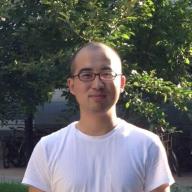Time flies, and it’s already the third day of 2020. Looking back on 2019, my keyword for the year is: “tried my best”.
This is my second year as a software engineer. Although my title is SE (Software Engineer), my main work involves product building and release, and the implementation of CI/CD/DevOps (self-proclaimed jack-of-all-trades). Let me briefly record my work “achievements” in 2019.
In 2019, in addition to completing daily product builds, releases, Git management, and VM management, I attempted major adjustments to build and release automation, migrating manual and partially automated builds from Bamboo to Jenkins. I used Jenkins’ multi-branch pipeline, Shared Libraries, and Artifactory for continuous integration.
In 2019, I submitted an innovative project internally and was fortunate enough to win first place and the Chief Product Award.
This gave me the opportunity to go to the United States and attend the company’s developer conference. I’m very happy that this project has finally been included in the product roadmap.
At the end of December 2019, I went to Beijing to attend a two-day training camp on “JFrog Jenkins, Artifactory & Kubernetes,” learning best practices from engineers at one of the most influential companies (among others) in the DevOps industry.
This year, I gained a lot of new knowledge about continuous integration and continuous delivery, but only updated 11 original articles on my public account and 33 blog posts. The difference is that blogs are more like notes; I can record and modify them at any time without fear of mistakes. My public account is more like a newspaper; the content cannot be modified or supplemented after publication. Each update requires repeated revision and review, word by word, and ultimately takes several times longer to produce a complete original piece of content than writing a blog post.
I hope to produce more valuable content in 2020. If possible, I want to use 8 to 10 months of my spare time to complete something I’ve never dared to dream of before (if I complete it, I’ll write it down; if not, it will remain a secret).
Sharing an email I received on the last day of 2019:
Recently, everyone has done their year-end summaries. I wonder, how many people are satisfied with their performance this year? Did you demonstrate your value at work? How many times did you submit code? How was the quality of the submitted code? How many customer problems did you solve? How many bugs did you find?
Did your technical and business knowledge improve? Compared to your colleagues, are you satisfied with your rate of progress? How many people spend their time on WeChat and chatting? Are there people who are just going through the motions or just doing enough to get by?
We are all about the same age, mostly in our thirties and forties. This age is considered the best working age. I hope you don’t waste your best years here.
Some people may say that I have achieved or am close to financial freedom, and I don’t have high demands on my work. First, I congratulate you on achieving financial freedom, but at the same time, I want to say that work is far more than just a source of income. Can you gain the recognition of your colleagues and superiors in your work, and can you demonstrate your value?
I like to work with people who are curious, responsible, and ambitious. At the same time, I dislike people who are constantly on their phones during work hours and lack ambition. If you have something to deal with, you can step away to make a phone call and resolve it quickly. Idle, aimless phone use is not acceptable.
There are also people who leave work exactly on time, as if working even a few extra minutes is a loss. This mentality is absolutely unacceptable. I wonder, if your ability is inferior to your colleagues, and you don’t work harder than others every day, how can you catch up with or surpass them? Do you always want to be behind? Go the extra mile every day, and do a little more.
I read it several times. Thank you for the above words. From a personal perspective, I strongly agree with the above points, especially the statement that work is far more than just a source of income; it is a reflection of one’s value. If you like the job, try your best to do it well; if you don’t like it, find your passion as soon as possible.






